HDZ Official Claims Pamela Anderson Waging ''Special War Against Croatia''
HDZ officials have a strange addiction to making shows of themselves. Sometimes they get themselves in hot water and it is tragically amusing, other times, such as when they engage in corruption, physically abuse their partners, or beat up innocent people for no reason, it isn't funny at all.
One of the stranger things to come out of an HDZ official's mouth (and there have been many) is that Pamela Anderson is waging a special war against Croatia. Yes, you read that completely correctly. Pamela Anderson, from Baywatch, has apparently given up running around on a beach in slow motion with somehow still perfect, sea-proof makeup, to take to leading a war against Croatia. She must really be bored.
As Glas Istre writes on the 28th of May, 2019, Pamela Anderson is a woman who seems to have lived several lives, she's done a lot, and now much of her attention has been turned towards animal rights, such as exposing the horrors of the fur trade, and spreading awareness about the dangers of climate change, oh, and leading private wars against Croatia, at least that's what Split's HDZ boss Petar Škorić seems to believe. While we're sure Pam has a lot better things to be dealing with, let's have a look at what this HDZ official seems to believe she's doing.
Pamela revealed in a recent interview that she supports the left-leaning party Možemo! (We can!) on Twitter, because she has some good friends from Croatia.
''Maybe Croatia needs a political earthquake if you want to stop thousands of Croatian people leaving the country because the economy doesn't work, and if you want to be able to manage the situation where millions of climate refugees will come in two or three decades. My message to Croatia would be: Pay close attention to those movements, support the children who strike, get out of your nationalist past and come back to the future,'' Pamela said.
Her statements were reacted to on Facebook by Split's HDZ chief Petar Škoric, who publicly claimed that the Canadian-American actress and extremely dedicated animal rights activist is waging a special war against Croatia, merely for providing some quite reasonable advice.
Follow our dedicated politics page for more.
New Catamaran Lines Presented, to Operate in Summer 2019 Season
In the last several days we've received three separate reports of new catamaran lines introduced for the summer season of 2019, with the intent of inter-connecting Croatian islands. The fact that Croatian islands were often perceived as not inter-connected enough, and that you often had to go to Split in order to get to another island which was in fact quite close was often listed as one of the bigger problems for tourists in Croatia.
Well, that seems to be changing: during summer 2019, there will be at least three new catamaran lines which will help fix that! Those are:
- Split Airport - Split Town - Bol on Brač Island - Stari Grad on Hvar Island, operated by https://splitexpress.com/en
- Rijeka - Krk (Krk) - Lopar (Rab) - Novalja (Pag) - Zadar, operated by G&VLine
- Dubrovnik - Korčula (Korčula) - Hvar (Hvar) - Bol (Brač) - Split, operated by Jadrolinija.
The last of the three mentioned existed last year too, as we've made clear in our 2018 guide on how to get to Korčula Island. Obviously, it has proven to be a success last year, so Jadrolinija has decided to bring it back, starting operation on May 30th, and lasting until the end of September. The timetable (link to the .pdf document) is similar to last year's, with the key difference being that it will be departing Split 45 minutes earlier in the afternoon (at 15:30, while last year it was at 16:15), thus arriving in Dubrovnik also 45 minutes earlier. In addition, in Korčula, the ferry will not be docking at Dominče ferry port, rather at either the east or the west port in Korčula town itself. The very modern catamaran Jelena will be carrying passengers on this line.
Rijeka - Krk - Rab - Pag - Zadar is a new line, which connects the islands that are close to one another, but have never been well-connected. Now the new catamaran line will give the passengers the chance to island-hop, but also to make a same-day visit to the islands, as it will leave Rijeka in the morning, arriving in Zadar around midday, and you'll be able to from Zadar to Rijeka at around 8 pm. For a detailed timeline, click here (link to the .pdf document).
The timetable for the catamaran line connecting Split Airport, Split Town, Bol on Brač and Stari Grad on Hvar is a bit more complicated, but you can see it below:
HNL Round 36 Recap: Dinamo Tops Hajduk in Final Round, Osijek Finishes Third
May 27, 2019 - The 36th round of the Croatian First League closed out the 2018/19 season on Sunday with the highly anticipated 'Eternal Derby’ between Dinamo and Hajduk. Sunday’s games, which were all held at 7 pm, also included a meeting between Osijek and Inter, and Lokomotiva and Gorica.
Without further ado, here is our recap for the final round of the Croatian First League this season.
Istra 1961 v. Rudeš (2:0)
Istra and Rudeš, the two worst-placed teams this season, met on Friday, May 24, 2019, in Pula to open the final round of the season in front of 392 fans.
While the first half went without goals, Iglesias scored for Rudeš in the 63rd minute for 1:0, and Pavić secured the win for the home team thanks to a goal in the 92nd minute for 2:0.
Istra ended the season in 9th place with 25 points, while Rudeš finished in last with 14.
Slaven Belupo v. Rijeka (1:1)
Belupo and Rijeka met in Koprivnica on Saturday, May 25, 2019, in front of 872 fans.
Another game where the first half went without goals, it was Belupo’s Plantak to score first for 1:0 in the 57th minute, though their lead didn’t last long thanks to an equalizer by Acosty in the 64th for 1:1.
Belupo finished the season in 7th place with 37 points, while Rijeka finished in 2nd with 67.
Osijek v. Inter Zaprešić (3:1)
Osijek and Inter met on Sunday, May 26, 2019, at City Garden Stadium in front of 2,820 fans.
Inter was the first to score thanks to a goal by Postonjski in the 15th minute. Osijek equalized in the 42nd minute after Lepa scored for 1:1 at the half.
Pilj put Osijek in the lead with a goal in the 50th minute, and Bočkaj closed out the victory for Osijek with a goal in the 83rd for 3:1.
Osijek finished the season in 3rd place with 62 points, while Inter finished in 8th with 31.
Lokomotiva v. Gorica (2:3)
Lokomotiva and Gorica met on Sunday, May 26, 2019, in Zagreb in front of 380 fans.
Lovrić scored for Gorica in the 14th minute to put the away team in the lead at the half, though Ivanušec came back for Lokomotiva to equalize 1:1. Gorica retook the lead thanks to Miya’s goal in the 52nd, and Lovrić secured another in the 60th minute for 1:3. Burić was able to get one back for Lokomotiva in the 92nd minute, and the game ended 2:3.
Lokomotiva finished the season in 6th place with 49 points, while Gorica finished in 5th with 59.
Dinamo v. Hajduk (3:1)
Dinamo and Hajduk met on Sunday, May 26, 2019, to close out the final round of the 2018/19 season in front of 15,433 fans.
Hajrović scored for Dinamo in the 20th minute for 1:0 at the half. Gavranović increased Dinamo’s lead at the start of the second half for 2:0 in the 49th minute and scored again less than 10 minutes later for 3:0.
Hajduk was able to come back with one goal thanks to Caktaš in the 68th minute, who was named the top goalscorer of HNL this season.
Dinamo finished the season in first place with 92 points, while Hajduk finished in 4th with 62 points.
You can find the full table here.
To read more about sport in Croatia, follow TCN’s dedicated page.
Successful Diaspora Returnee Stories: Joe Kustra, Axsis Projects, Zagreb
The 2nd International Conference on Diaspora Tourism took place in Split on May 17, 2019. TCN meets some of the returning diaspora who have made a success of life in Croatia. Next up, Joe Kustra of Axsis Projects in Zagreb.
1. You are from the States, returned to Croatia, something that many diaspora dream of doing. Tell us briefly about your journey.
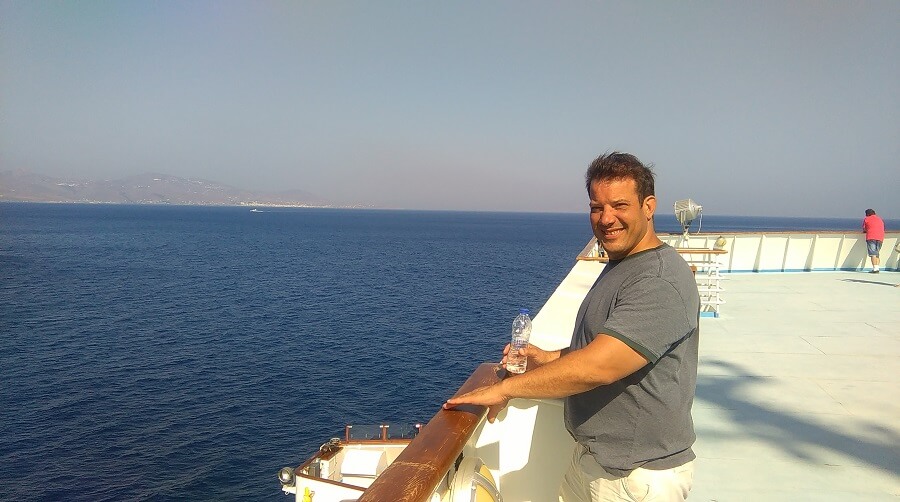
I came to visit my grandmother as a child in 84-86 and I spent entire summers here. I made friends that I still have today. I had unforgettable summers and always wanted to return. I’m originally form New Rochelle, NY. My father is Croatian and my mother American. After university I started working at a company trading equities in NY city. I’ve been self-employed since 1999 in equity trading. I invested in Croatia in real-estate in Dalmatia in 2001/2003 because I saw undervalued real-estate and great potential. I think this is also one of the best places in the world to vacation. I’ve been coming to Croatian every summer for the past 18 years. I spent years working in offices so I wanted a lifestyle change, less stress, more time on the beach, maybe go fishing and enjoy good food and wine. Croatia offers all of that. I met my lovely wife here and we decided to stay and start a family. My rental business is doing excellent and I do business development for the architecture company my wife founded - Axsis projects. Since most of our clients are foreign and investing in Croatia I can relate and understand specific problems they face since I went through it myself.
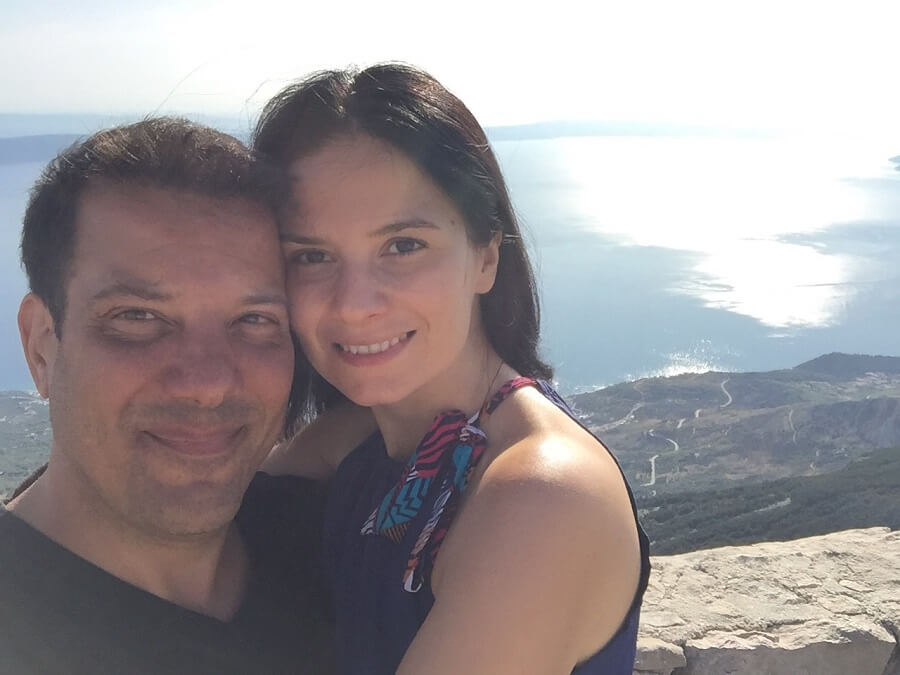
2. Looking back, what were your hopes, expectations and fears about moving to Croatia?
Biggest fears were not knowing the language and dealing with south Croatians about business. I had such bad experiences before. And being on my own, not having a network of friends and family to call out for help. Things have vastly improved over the past 10 years. I hoped doing business would be more transparent. But I’ve always been fiercely independent and a self-starter. I never really expected much but I knew to always count on myself to get things done. Dealing with the Balkan mindset was also one of my big worries.
3. How supportive was your Croatian community back home at the time?
My father and his friends did put me in contact with some local people in Croatia. The first Easter and Christmas would have been difficult if I was alone. I was invited to a wonderful family friends house for those holidays. My father was very happy and supportive. He is also very happy that his son married a Croatian girl and decided to live in Croatia.
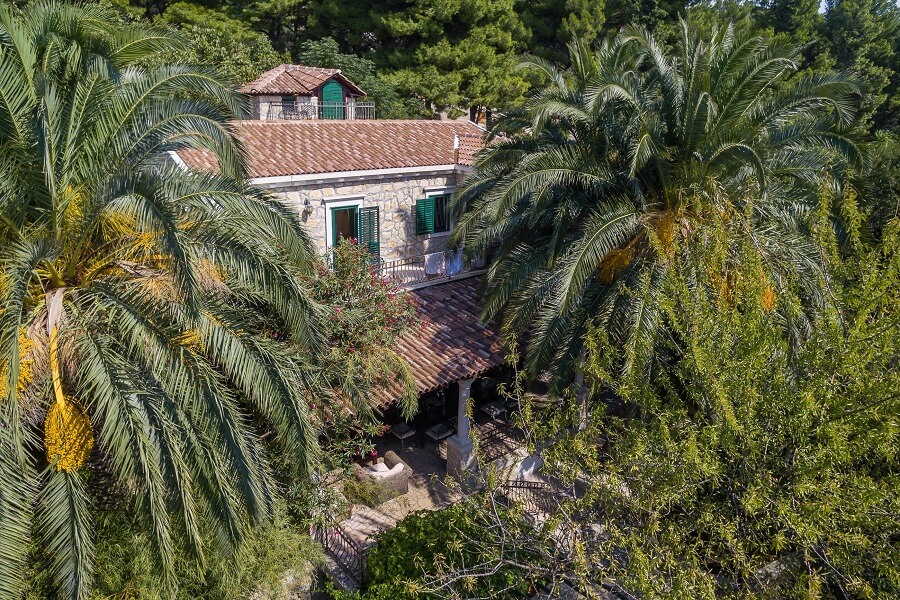
4. Many diaspora think of returning but few do. In truth, there is little information out there about real-life stories and help/info about the process. What advice do you have for those who are thinking about making the move?
I would say go for it. However, many of the things that we take for granted in the western world we can’t even expect here. You need to be proactive in achieving what you want, don’t look for handouts. It’s a good idea to have some financial security to support yourself for 6-12 months. Try to connect to the diaspora community here to assist you with your move. Be extraordinary careful about investing in real estate here and make sure you only deal with reputable people. What helped me is getting involved in expat community. For example, I’m a member of ACAP- American Croatian Professionals Association which gives me access to amazing people and a supportive community.
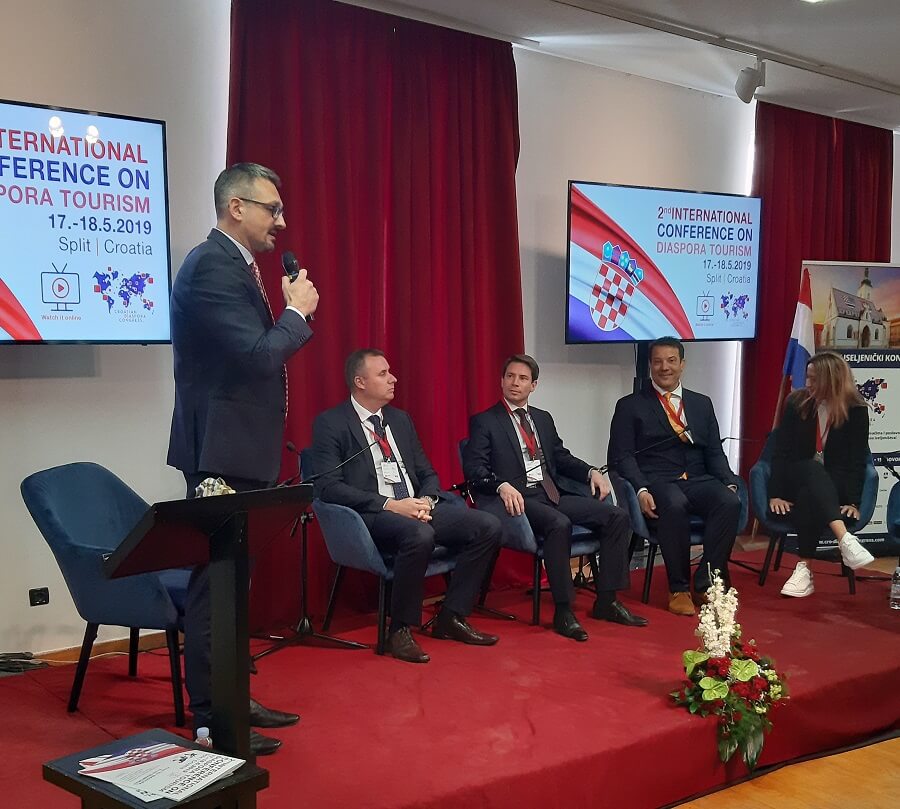
5. How were you perceived in Zagreb as diaspora moving back - was the welcome warm?
A lot of people were very shocked that an American would pick up and move to Zagreb. Why would you want to move in while everyone else is moving out? For the most part the welcome vas very warm. I managed to meet some wonderful people. A small minority were hostile towards my move. Old divisions and traumas still influence the way people treat foreigners. Younger generations are very open-minded and western orientated.
6. Through a lot of hard work, you have been very successful, while many foreigners have given up and left Croatia. What are the keys to success in doing business in Croatia in your opinion?

Persistence, hard work and initiative. Everything in Croatia is more difficult to accomplish than in the US, but through hard work and finding the right people, everything Is achievable. For example, I had tremendous difficulties finding contractors to do small jobs around my house. I stopped relying on outside help and started doing many things myself - plumbing, masonry, electric, roofing and similar... I could not find a welder so I bought my own welding machine and started watching – how not to kill yourself while arc welding 101 . In America they say if you want something done right you have to do it yourself. In many cases that is true. It is very important to surround yourself with honest hard working people who share your values. Avoid the smooth-talking con artists at all costs.
7. What is the diaspora community like in Zagreb and how integrated is it with locals?
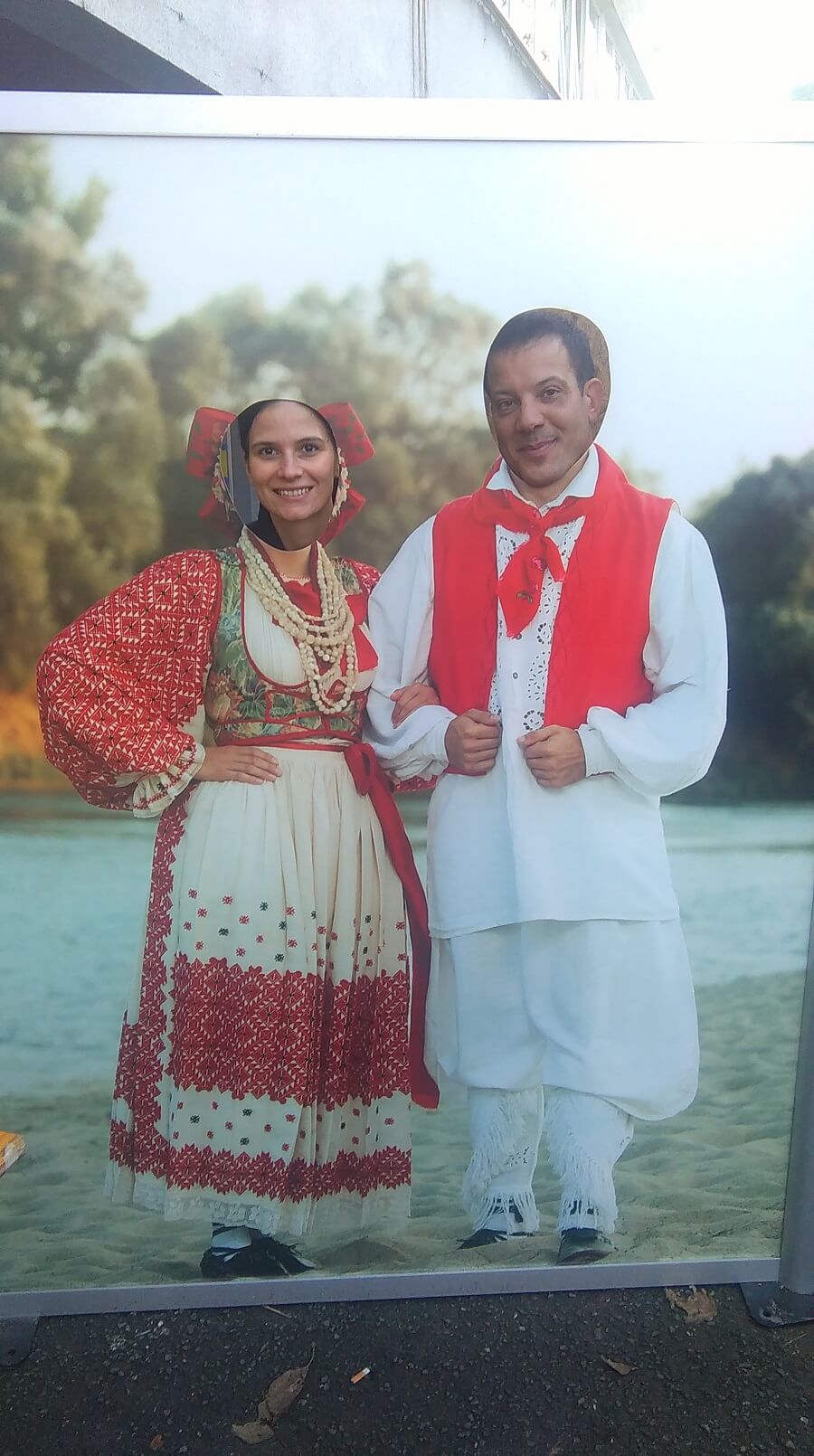
It is quite segmented but through FB meetups I managed to meet some great people. I think connectivity is improving with quality gatherings. Social networks are a crucial tool or personal networking. Diaspora and expats groups are excellent to help each other integrate and thrive.
8. And finally, a word on this conference. How was it for you, and what were the main take-home points?
I thoroughly enjoyed the conference. I felt that there was an inspirational and positive energy in the room. All of the speakers brought renewed optimism not only to the conference but to the country. Besides ‘don’t trust your cousin’ make sure that you are dealing with qualified honest people to further your business investment in Croatia.
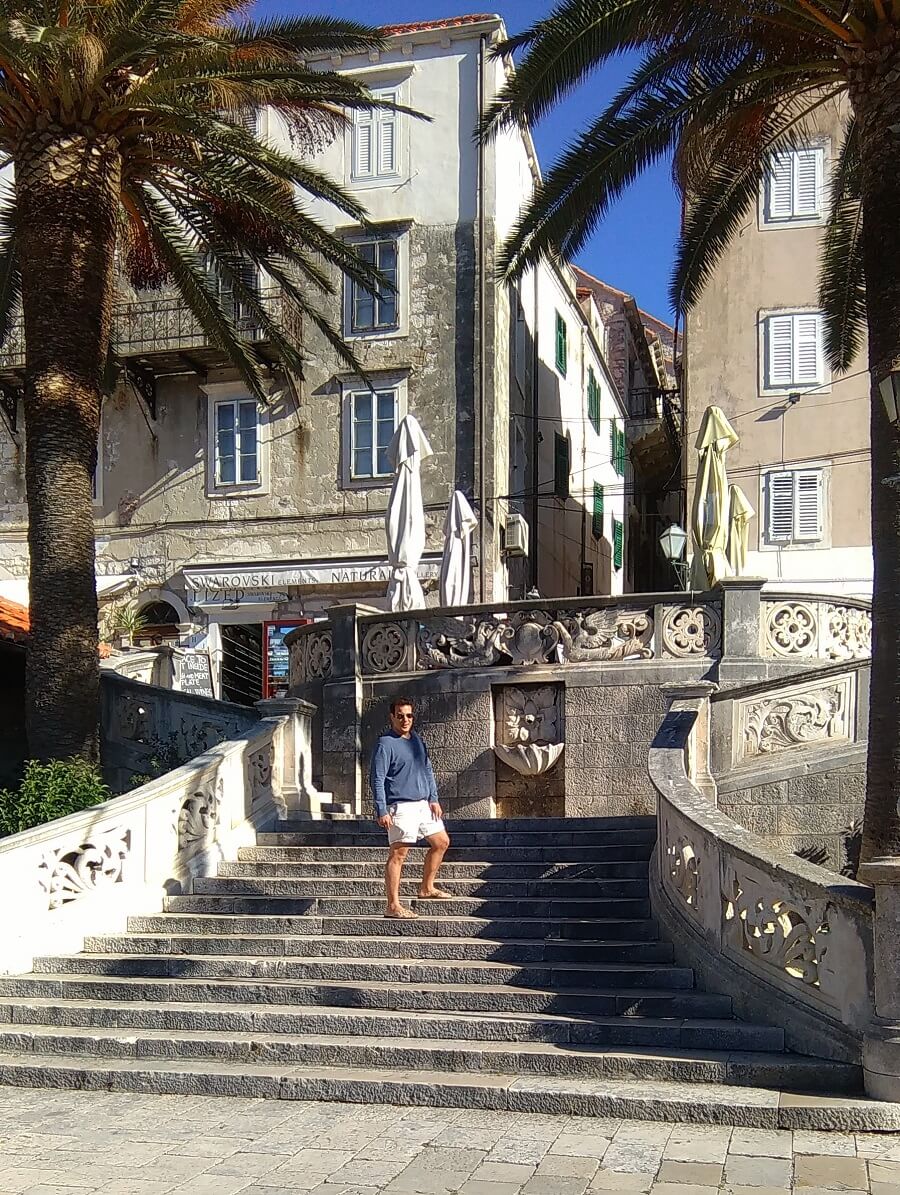
You can connect with Joe via Axsis Projects.
For more on the Croatian diaspora, check out the TCN dedicated section.
Flights to Croatia: Jet2 Boosts Traffic to Split, TUI Cuts Lines to Dalmatia
May 26, 2019 - The latest news from around Croatia’s airports for new flights to Croatia with updates from Split and Dubrovnik.
AvioRadar reports that from 2020, British low-cost airline Jet2 will boost traffic on the line between Split and East Midlands airport, located in central England near Nottingham and Derby.
Recall, last year, Jet2 operated two flights during the week between Split and East Midlands, on Wednesdays and Sundays. This year, flights were canceled on Wednesdays, resulting in a reduction of traffic to one flight weekly, on Sundays. However, based on the 2020 summer schedule, Jet2 has re-introduced the flight on Wednesdays.
Jet2 will operate a Boeing 737-800 on this route.
In other news, AvioRadar reports that the French subsidiary of the TUI group significantly reduced traffic on routes to Croatia this year. Namely, of the 10 lines operating last year, only two remain.
One of the remaining routes runs to Brač airport. Thus, the only line between France and Brač will continue operating this year, as traffic from Deauville will work to the island airport once a week, on Saturdays, with the Embraer ERJ-190 aircraft.
To Split, only one of the five lines remain. The Paris line from Roissy-Charles de Gaulle Airport to Split will run once a week, on Sundays, instead of Mondays like it did last year, using the Boeing 737-800 aircraft. The lines from Lille, Lyon, Nantes, and Toulouse have been canceled.
TUI has no operations to Dubrovnik from France this year. Namely, last year’s flights from Deauville Lyon, Nantes and Paris have all been canceled. The TUI Airlines Belgium aircraft flew on all lines between France and Croatia.
All package deals from these destinations, apart from Lille, remain on offer at TUI this year, though air travel for these tourist arrangements is planned by the regular lines of Volotea or the charter flights of ASL Airlines France.
To read more about travel in Croatia, follow TCN’s dedicated page.
Successful Diaspora Returnee Stories: Kreso Gotovac, Trigon, Split
The 2nd International Conference on Diaspora Tourism took place in Split on May 17, 2019. TCN meets some of the returning diaspora who have made a success of life in Croatia. Next up, Kreso Gotovac of Trigon Capital in Split.
1. You are from Canada, returned to Croatia, something that many diaspora dream of doing. Tell us briefly about your journey.
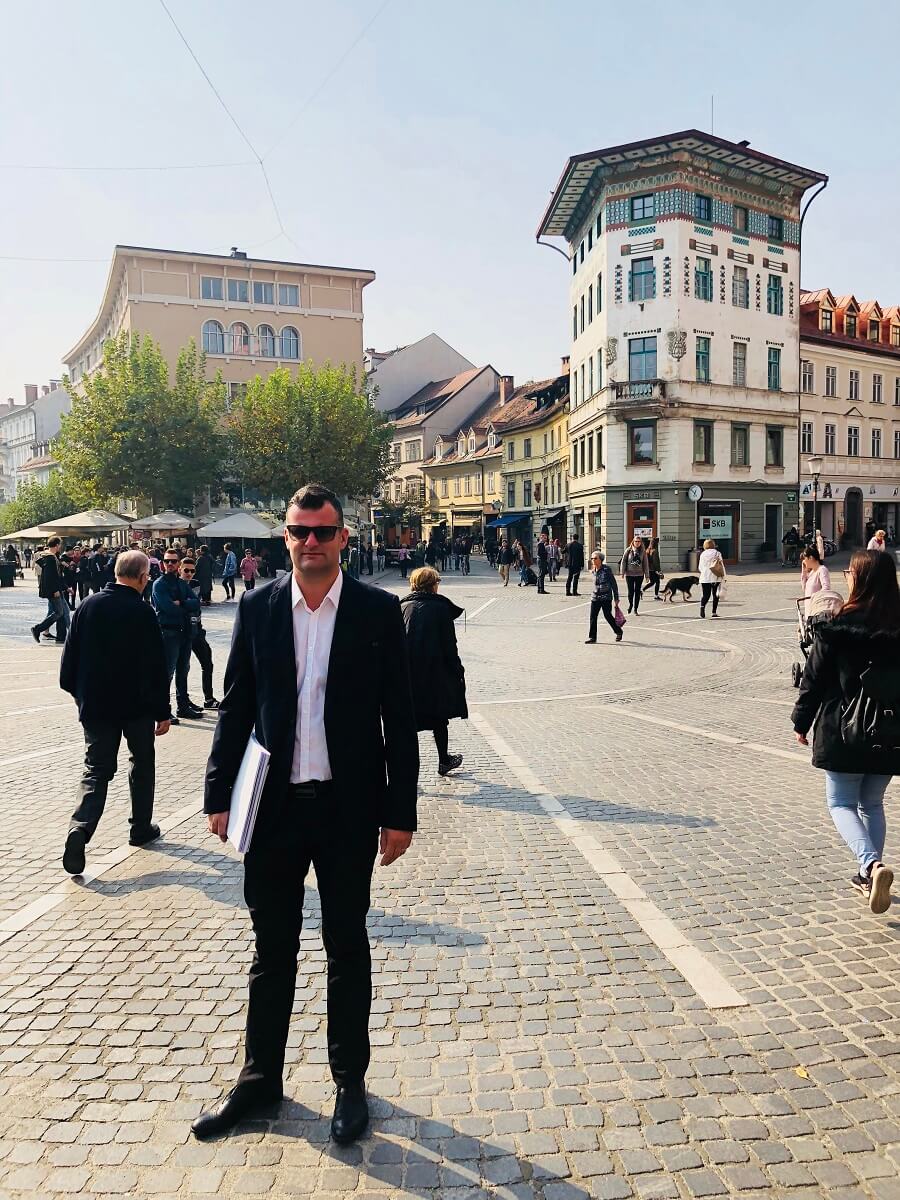
I left Canada 19 years ago, but I had a very different path in returning. It was a very multistep process, moving around back and forth from neighboring countries until I finally made my home base in Split. Croatia, in particular Split, was always a faraway dream, as I visited regularly with my family, and made a large base of friends throughout the younger years that I still have today. So, when I had the opportunity to join a start-up telecom company in Slovenia in 2000, I did not even have to think about it for a second. I accepted the job and left 7days following a phone interview, as I had asked, “When do you need me to start?”, and he said “yesterday”. One of the major reasons for leaving Canada was the daily commute of 1.45 hrs to work and then 1.45 hrs back, making the dream job that I had in Toronto somewhat of a fantasy, as you don’t have much time or energy to do anything after spending so much time on the road.
My commute to work now in Split is a 5-10 min walk through the 1700 yr Old Historical Diocletian Palace, or a quick electric bike ride. Now, looking back and comparing, I have more than 3 extra hours to enjoy with family and friends and many, many “kava” meetings, all the while, getting well-deserved vitamin D in the sun on the Split promenade and other places. I must also mention that this life-changing move was all due to the part my brother Danny played in organizing the phone interview. He had already been living in Europe/S.America for 6 years at that time and dreamed of us brothers working and living the European lifestyle together. His dream came true and made mine as well, and to this day I am grateful to him.
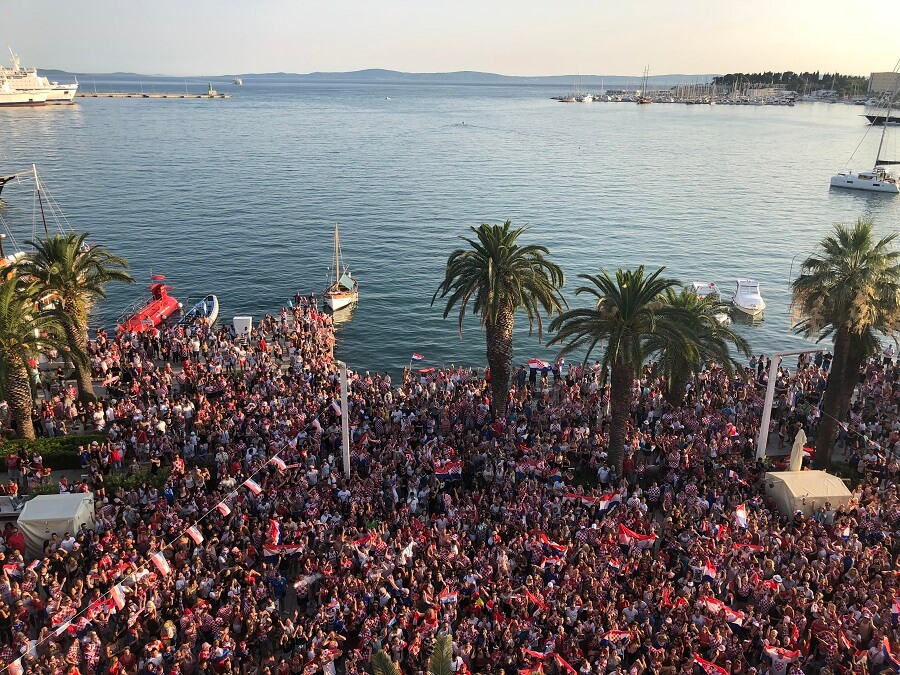
From my initial position in Ljubljana which was supposed to be a 6-month contract, but extended to 2 years, I found my way to Split through networking and meeting business like minds, thereby continuing telecom services and opening a firm. After working in Split for 2 years, the project ended abruptly, and I applied online to work for the UNDP in Kosovo and was accepted for a project lasting a little over 2 years. These were some of the most memorable life and learning experiences that Canada would not have been able to provide.
Shortly after, there was another interval of 2 years of working in Split where I met my wife and knew that I had to figure out a way of staying without constantly changing countries and projects. However, due to certain circumstances, I joined an Irish Investment Fund in Budva, Montenegro, developing residential property along the coast.
At that time, through networking, I met one of the key lifechanging individuals in my life, that was the CEO and founder of an Estonian Fund who was visiting Dubrovnik for vacation. After 8 months of team meetings and discussions, he asked me to join his team in Croatia, with the office based in Split on the main promenade. How could someone say “no” to this? So, I gratefully accepted and have been living in Split, and working with Trigon Capital for the past 10 years, investing and developing tourism and residential projects along the coast of Dalmatia with my college Tomislav Sladojevic, who also returned to Croatia from Germany 15 years ago.
With this next step in my professional career, my personal life also took off. I got married, and my wife and I decided to invest all of my savings into tourism, and thus, we opened SleepSplit.com - Luxury Suites & Rooms in the UNESCO center of town in 2012 knowing that “Split will be our forever home” as they say. This is the story in short as I would need to make a movie to explain everything in detail!
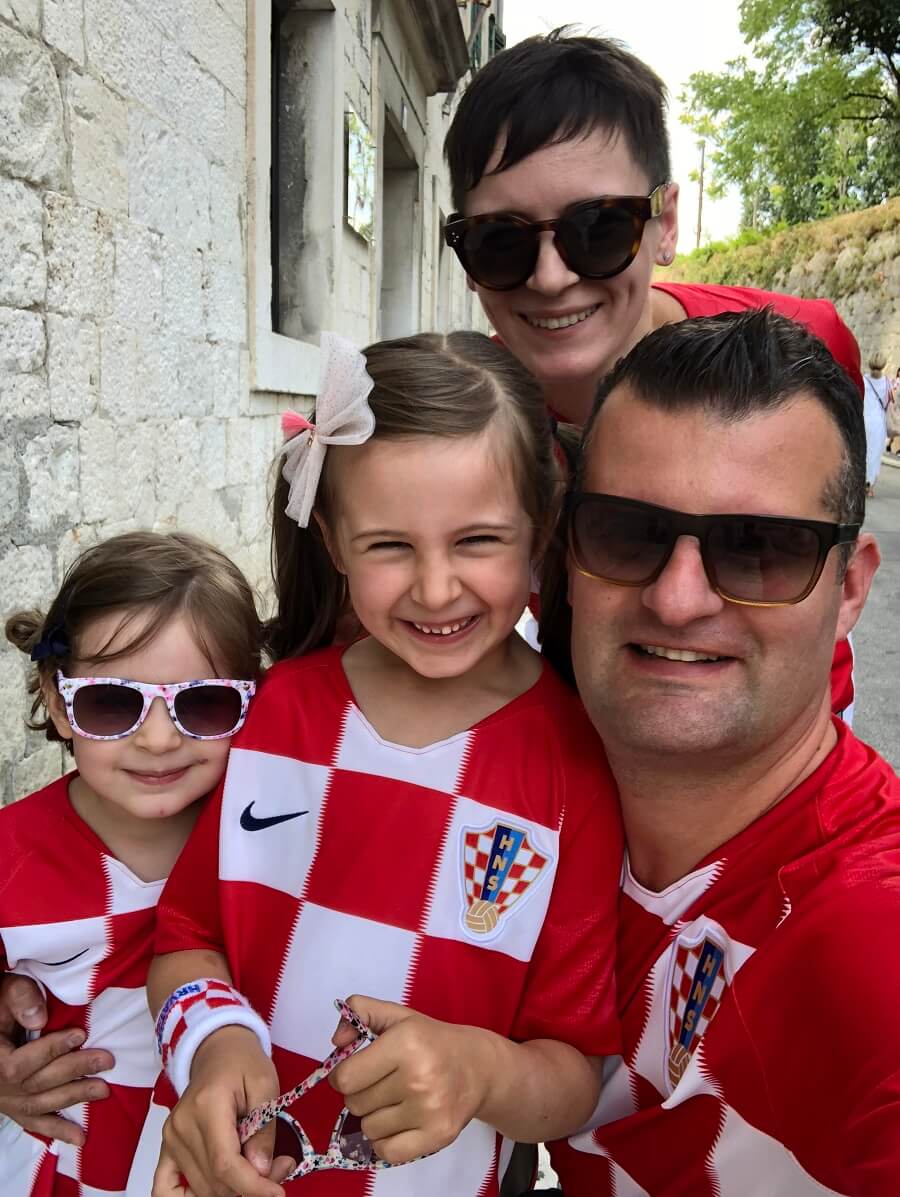
2. Looking back, what were your hopes, expectations and fears about moving to Croatia?
When I moved from Canada, I took a 6 month leave without pay from a career job in the center of Toronto. Everyone expected me to return. Soon after, I extended for another 6 months, but ended up staying for 2 years in Slovenia before moving to Croatia. That was 19 years ago. Returning to Canada was always an option in the early years, but jobs and opportunities continued to present themselves.
Today, Croatia offers so much more potential for newcomers, compared to how it was when I first came. Back when I arrived, I was changing countries and high-level jobs in neighboring countries, but today you can come to Croatia and start in any field and find or start your own company, especially in tourism, considering the enormous influx of tourists these past 5 years. In the beginning I was always looking at a short term project or start-up, but 10 years ago I knew I wanted to stay and this was a game changer! That’s why I invested into Sleep Split - Luxury Suites - to have a foundation and eliminate the worry and fear of moving again to another country and another job, especially now with a family of four.

3. How supportive was your Croatian community back home at the time?
I think everyone believed it would be a short leave, but they soon realized I was not coming back! They accepted this and encouraged me during all my stages in getting settled in Croatia. During those early years and even more today, I have friends visiting and only wishing they could find a job like back home but live in Croatia. The funny/crazy thing is that they can, but the majority with families will never take that risk. However, younger generations are trying, as I know 3 individuals that have returned to Split from Canada in the past 3 years and all are successful. I encourage and wish everyone from the Diaspora to take the risk and return to Croatia, as that decision is the hardest to make.

4. Many diasporas think of returning but few do. In truth, there is little information out there about real-life stories and help/info about the process. What advice do you have for those who are thinking about making the move?
Life in Europe and along the coast in Croatia cannot be explained or described to give its beauty justice. This is especially true of Split; everyone just needs to do it and never look back. I believe if there is even the slightest opportunity, everyone should take it young or old. From summers in Croatia, winter skiing in Italian or Austrian Alps and everything in-between, it has proven to be a perfect formula. My very good local Croatian friend which I met more than 10 years ago would work 4 months and travel the world for 8 months. I always wondered how that was possible, an 8-month vacation? In Canada, you only have 2 weeks’ vacation.
Today in Croatia the season has expanded to 6-7 months, so vacation and time to work on other projects for someone in the tourist sector is now “only” 5-6 months. I consider this the dream job everyone can do if they decide to return to Croatia, just like my local Croatian friend that many know. There are so many of us Diaspora that do such seasonal work, and that is the hidden reality - you don’t have to settle with only 2 weeks’ vacation, but you invest and work hard in the tourist sector and, as a result, take any time for yourself for vacation and other projects.
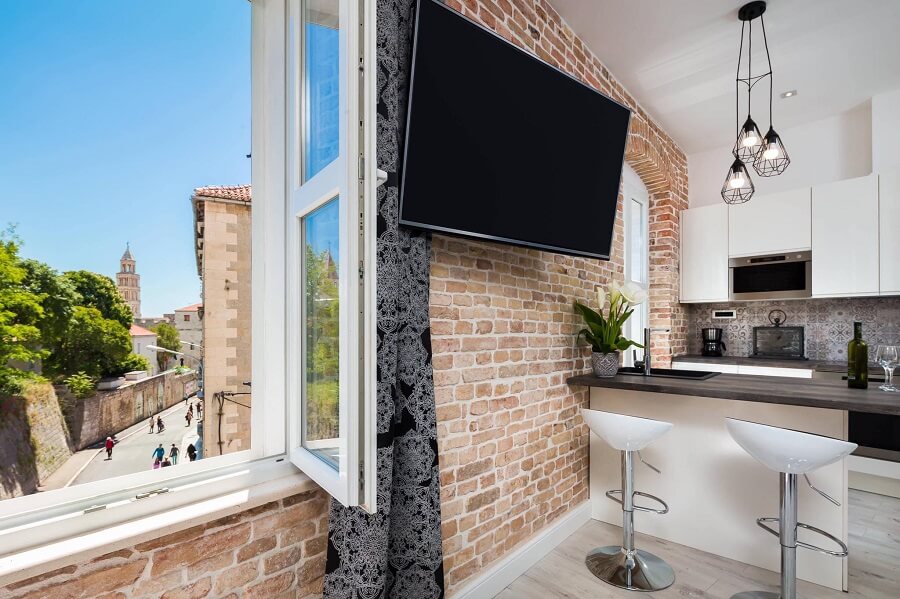
5. How were you perceived in Split as diaspora moving back - was the welcome warm?
The usual question even today is why would you move to Croatia? Is Canada not better? With the country being so small in population, and politics being a major topic of conversation with the locals, it seems that only negative news and discussions of corruption and who you know is talked about. No wonder they think we are crazy to return.
However, the group of expats and people that have returned, never talk much politics or about general problems, but instead, work hard to understand the process needed and get things done and also work to change the system if possible. This is why there are many stories of successful people returning, especially with the tourism and real-estate boom these past 5 years.
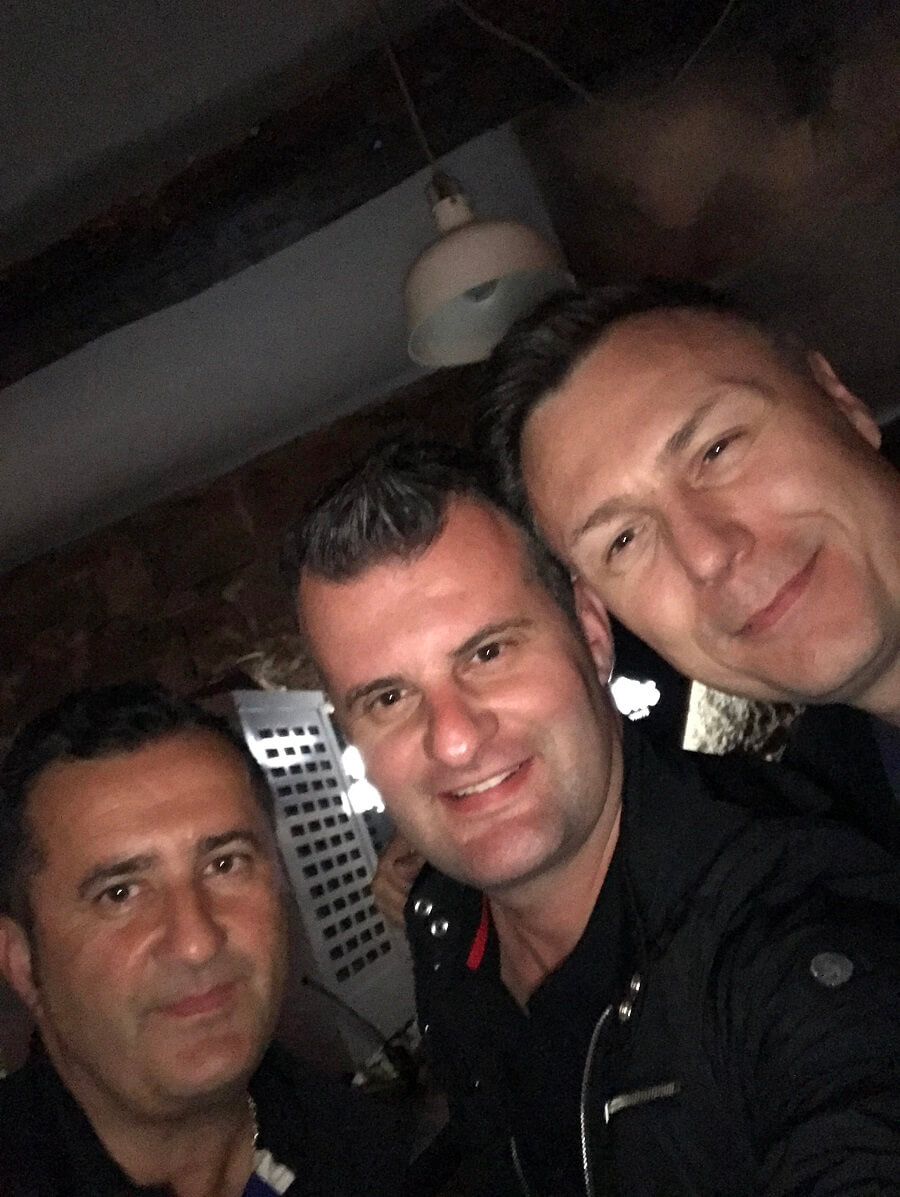
6. Through a lot of hard work, you have been very successful, while many foreigners have given up and left Croatia. What are the keys to success in doing business in Croatia in your opinion?
Never give up is main formula for being successful and for staying in Croatia, and patience. I had many opportunities to return to Canada, but decided to take jobs in neighboring countries such as Slovenia, Montenegro and Kosovo while always searching and networking for a way to return to Croatia, and not Canada. Once you find your niche in Croatia, in whatever sector, your quality of life will improve in every aspect of your life.
It’s hard to explain, but I wish everyone could have a chance to live in Croatia for a longer period of time, and realize that you cannot compare the quality of life in Croatia to Canada. We do have to mention that Canada has contributed to our success due to our upbringing, work ethics, education, and mindset. The qualities that you have gained abroad like customer service need to be used, and success will be imminent.
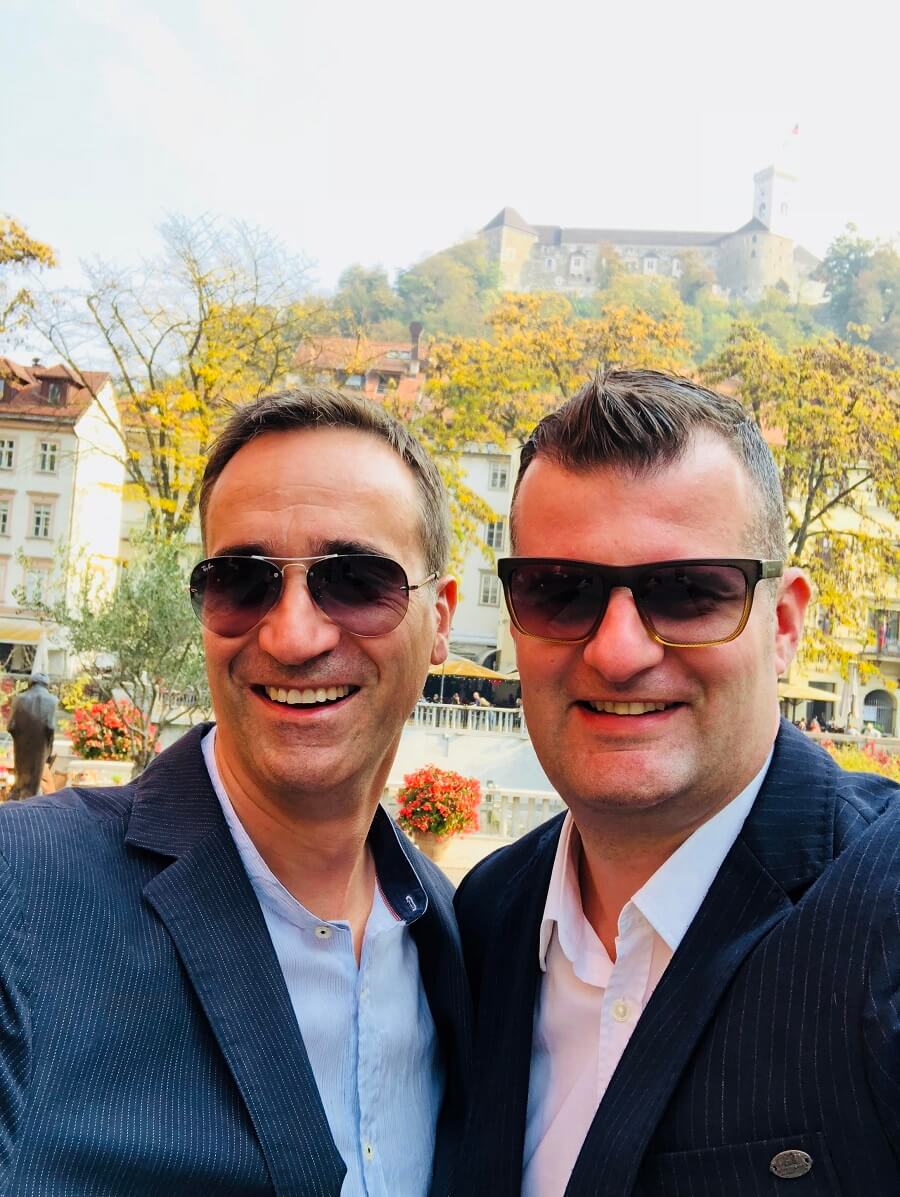
7. What is the diaspora community like in Split and how integrated is it with locals?
It’s amazing! The group of Diasporas that live and work in Split are only positive and work hard. Everyone shares their knowledge and experiences helps in every way possible to make sure that someone who has just arrived is successful as well. In the tourism season, we meet much less, but that’s why we make up for it during the offseason by enjoying each other’s company and traveling Europe and the world together.
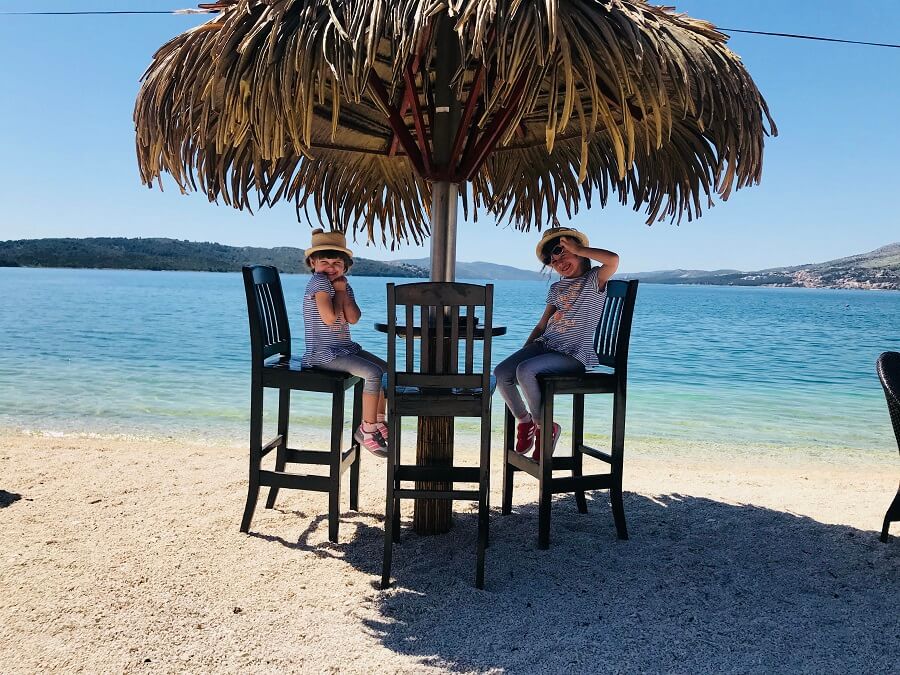
8. And finally, a word on this conference. How was it for you, and what were the main take-home points?
Meeting so many people for the first time that I have not met before was very positive and there were so many amazing stories to listen to. We exchanged and shared contacts, and just today I was in contact with a few new Australian friends that live in Zagreb. We are already planning to discuss business ideas and meet next month on Island Lopud, where we annually have a Canadian Diaspora meeting at “Villa Lopud”, owned also by Diaspora from Canada.
For more on the Croatian diaspora, check out the TCN dedicated section.
Successful Diaspora Returnee Stories: John Gasparac, PWC, Zagreb
The 2nd International Conference on Diaspora Tourism took place in Split on May 17, 2019. TCN meets some of the returning diaspora who have made a success of life in Croatia. Next up, John Gasparac, Country Managing Partner of PWC.
1. You are from Canada, returned to Croatia, something that many diaspora dream of doing. Tell us briefly about your journey.
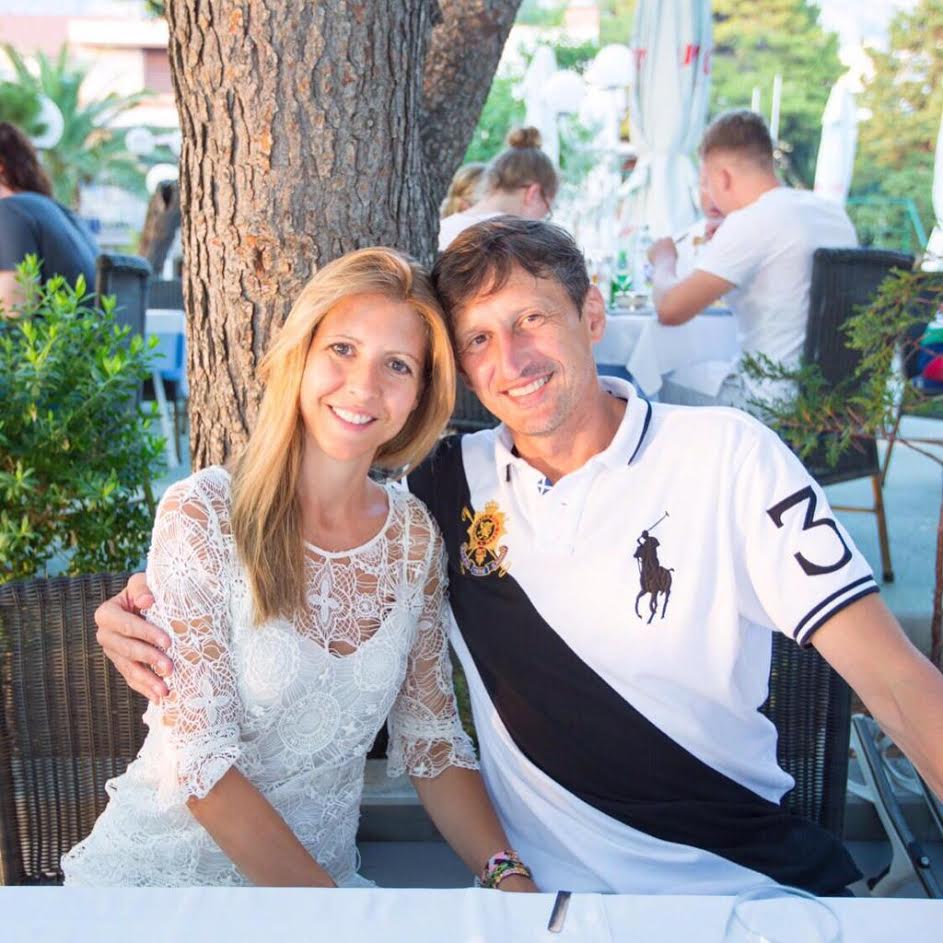
Initially, my decision to move to Croatia was not to become a returnee. I accepted a 2-year secondment to open the Price Waterhouse office in early 1997. I did not feel comfortable committing for more than two years. I came to Zagreb in January 1997, recently engaged (to my wife Maca, we were married later in 1997) - we both looked at the move as more of an adventure or life experience at the time.
However, as time went by, and the country developed, my career opportunity at PwC also blossomed. PwC is now 250 people strong and Maca and I have 3 children (Ivana 19, Marko 18 and Ivan 11), all of whom have grown up in Zagreb. My journey, like many others, illustrates anything is possible and diversity makes you stronger - I am Canadian, Maca is Australian born, Ivana and Marko were born in Canada, and Ivan was born in Zagreb. You can't plan this!
2. Looking back, what were your hopes, expectations and fears about moving to Croatia?
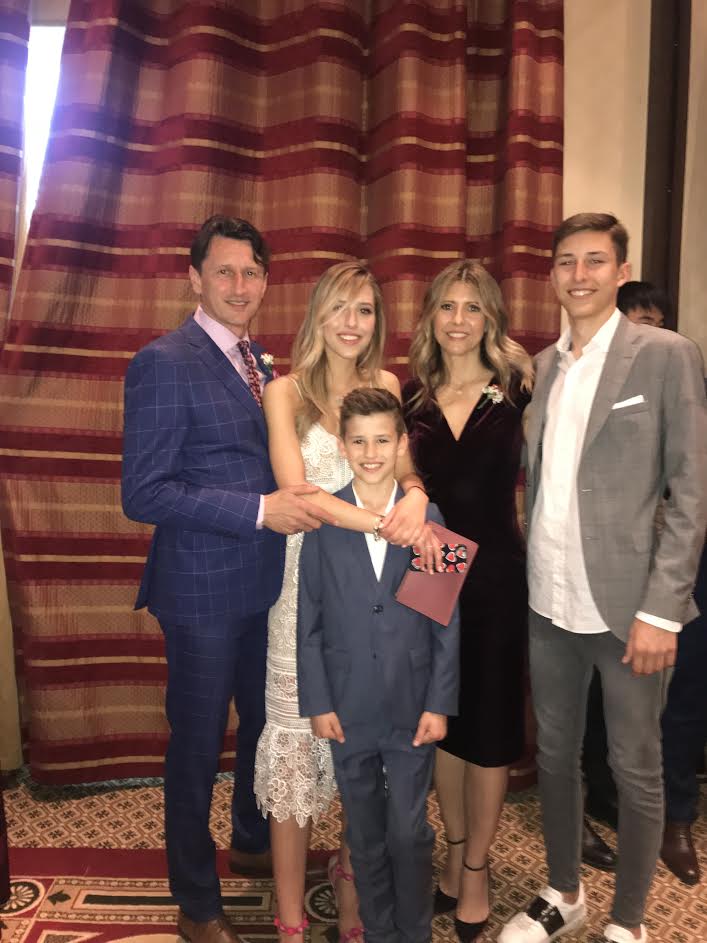
I would say that my hopes were to have an unforgettable experience, career-wise but also from a general life perspective. In particular, improving my Croatian, travelling through Croatia and the rest of Europe, and of course, meeting new people as well as being closer to family I had never really spent much time with. I expected there to be challenges from a cultural perspective, especially in the office and with clients, but generally I looked forward to finding my place both in the office and socially. I think the only real fear, if I could call it that, was to not perform well at work.
Having said that, we came into the move believing it was temporary, and as time passed, those fears disappeared pretty quickly. In the end, reality has far exceeded any expectations I had ever had. I have met so many incredible people, travelled to many wonderful places and had more amazing experiences than I had bargained for, especially watching our Croatian National football team succeed on more than one occasion.
3. How supportive was your Croatian community back home at the time?

In Canada, the reaction was mixed. Many people were supportive and perhaps wish they had an opportunity to do the same, but I would say there were just as many saying it was crazy - what kind of life could I have there, especially since the war had ended only recently. My parents were even split on it - my father was thrilled, proud, encouraging me to make a life there. My mother, on the other hand, although not unsupportive, had many doubts and worries.
4. Many diaspora think of returning but few do. In truth, there is little information out there about real-life stories and help/info about the process. What advice do you have for those who are thinking about making the move?
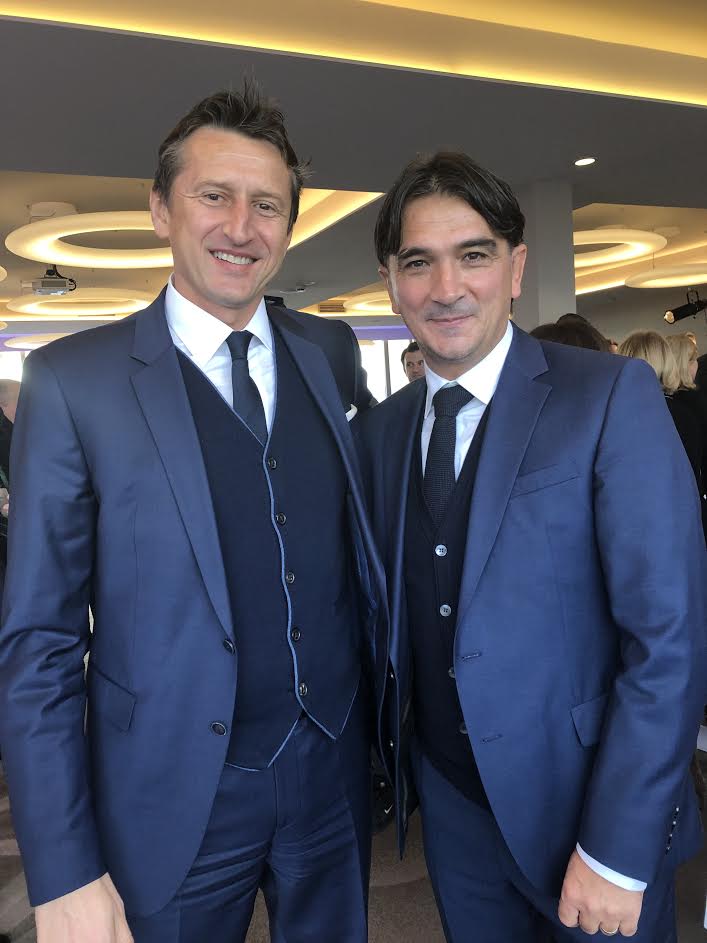
I think the best piece of advice I received at the time still holds true today. When you do move, the first 6 months, no matter what, will be the most difficult and unlike anything you have ever experienced before. In this time, you realise that you have left your entire life history behind you - friends, family, social activities - all the comforts you have in your home town - disappear, at least temporarily, when you first land.
So it is important to manage your own expectations - do some research (due diligence) to understand what processes are in place for newcomers - talk to people, even come visit, preferably not during the summer months, to get a feel for what everyday life is like. Even try to get a job, if only for a few months, to get a feel for the people, culture, possibilities. Consider what you would do back home - if you have children, consider which activities, sports, schools you would include them into. For me, simply the children growing up here provided plenty of opportunity to engage, and integrate with locals and the local opportunity. Generally, I have to say that today, it is much different than when I first came - from digitisation and connectivity, to improved and more efficient processes.
5. How were you perceived in Zagreb as diaspora moving back - was the welcome warm?
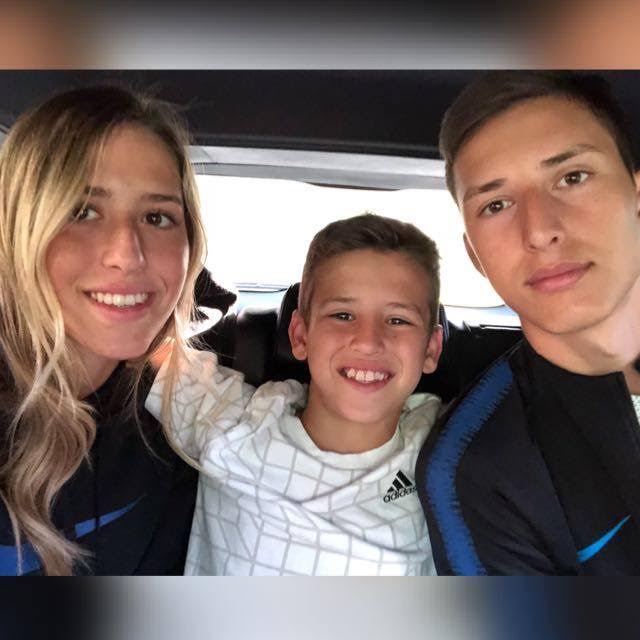
It was a mix. You have to take into account that when I arrived, the war was very fresh in people's minds, and many of the people I was working with grew up in the previous regime. I was perceived by some as a threat, taking someone's job. Some thought I was also crazy to come live there - all they wanted was to get out. There was even one person who was certain I was a spy!
It took over a year for all the theories to be dispelled and for most people to realise I was there to do a job and it was actually even good for them that I was there- it added credibility to the workforce. Mindset was also a point to note - I have been told several times that the thing people like about me (and my Canadian friends) is that we do the right thing because its the right thing to do, not because we have a specific ulterior motive.
6. Through a lot of hard work, you have been very successful, while many foreigners have given up and left Croatia. What are the keys to success in doing business in Croatia in your opinion?

There are many important keys to success, and I would say they are not too different to the rest of the world, when put in context. An open mind to new experiences/ideas, persistence, setting proper/realistic expectations, learning from failures, hiring quality people to name a few. In my experience, building strong personable relationships based on quality and trust, is perhaps the most important element. This takes time, it does not happen overnight. And all of the other factors impact or interact with this. However, these relationships (with clients, employees and the business community) over time also provide the basis for people to believe you aren't going anywhere either - the continuity of staying in Croatia for several years and clearly demonstrating good intentions, for me, has above everything else, been the biggest key to success.
Further, I want to emphasise that my trust in good people has also paid dividends - and there are plenty of very good people in Croatia, who are interested in working in a market economy and using their skills and competencies to succeed. There is also the intangible element of taking clients to Croatian National Team football matches (such as last summer in Russia). This has proven to be the ultimate bonding experience and takes relationships to the next level.
7. What is the diaspora community like in Zagreb and how integrated is it with locals?
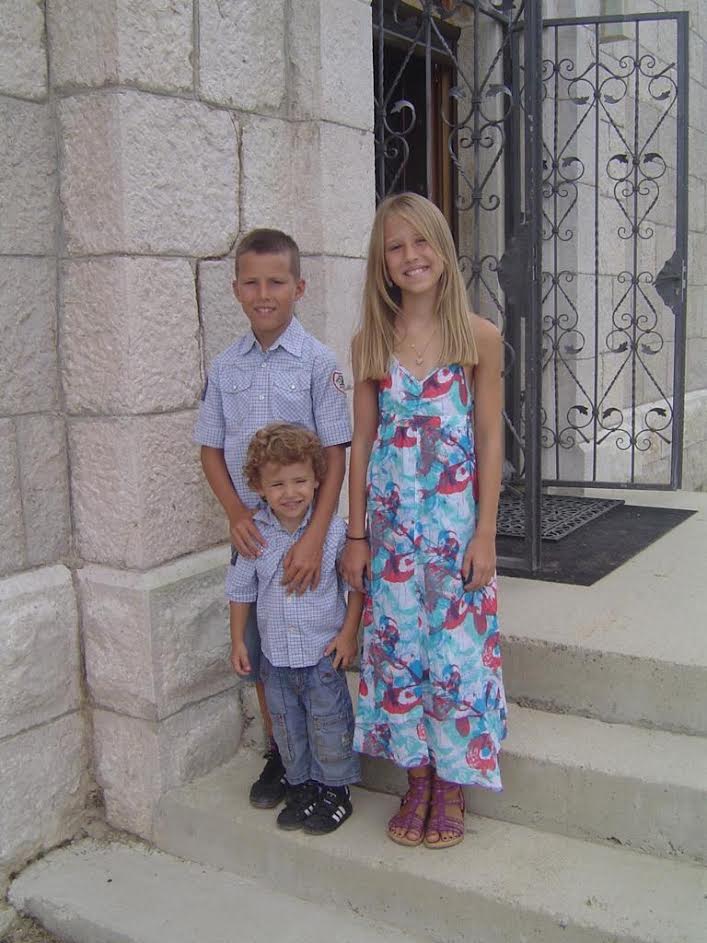
It is a diverse, somewhat fragmented community. It is not surprisingly primarily made up of Canadians, Australians and Americans although I do know some South Americans as well. Its a very nice blend of countries. There are some annual socials and events (such as independence days) and this gives us all opportunities to broaden our networks, share experiences, provide support to each other, as we do have very similar mindsets. I would say the diaspora is very integrated with locals - some through marriage but many through business, school, sports and general socialisation. It is imperative as there isn't that many of us that we can simply function without integrating with locals.
8. And finally, a word on this conference. How was it for you, and what were the main take-home points?
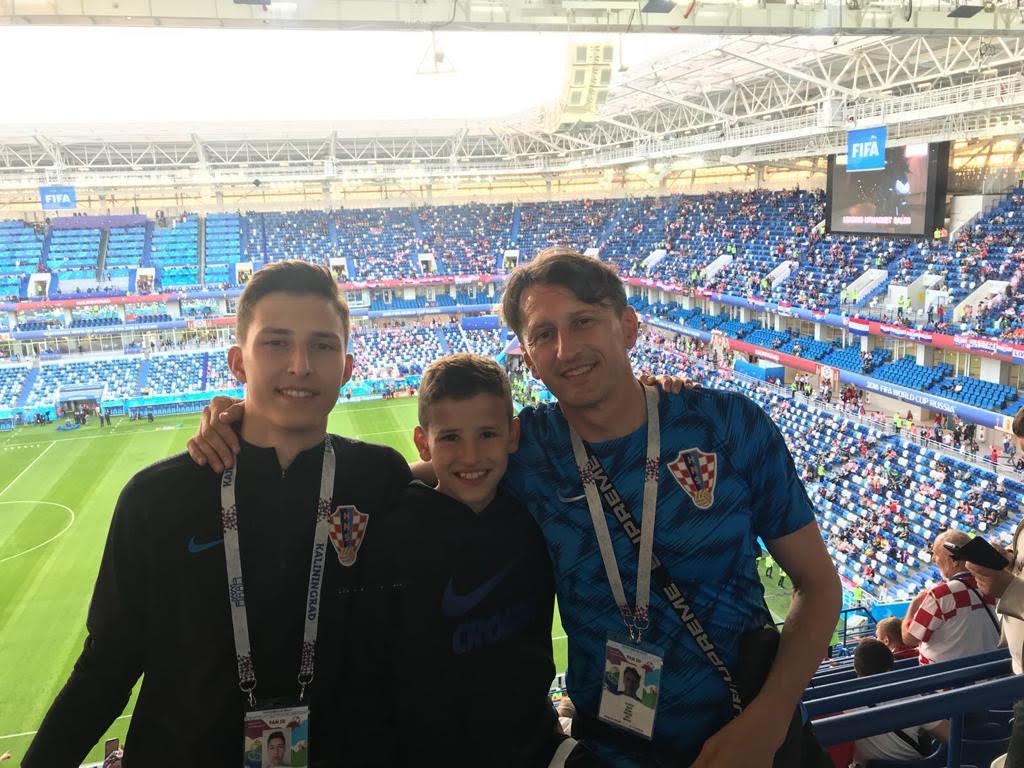
This was an excellent conference - both for its content but also for its timing. The themes were spot on and it drew on the experience of many successful returnees painting what I believe is a very realistic picture of the opportunities but also the challenges of living and doing business in Croatia. The timing was brilliant as Croatia is abundant with opportunities and a new wave of emigration could be the tipping point to bring them to fruition sooner rather than later.
What is important for me is that the conference provided a platform for returnees, who grew up in the diaspora - in very developed countries, to share their stories, their knowledge and experience with those who are thinking about moving and also for these same successful people to meet and start to create ideas, visions for the future, to lead and make Croatia a better place for generations to come.
For more on the Croatian diaspora, check out the TCN dedicated section.
Split Express: New Catamaran Line Connecting Split Airport with Split, Hvar, and Brač
Just last week, TCN announced a new catamaran connection between Split Airport and Bol on the island of Brač, but did you know you could travel to Stari Grad on Hvar, too? Meet Split Express.
Namely, from June 1 this year, travelers will be transported between the Split Airport and the islands of Brač (Bol) and Hvar (Stari Grad), and the city of Split with a new fast catamaran line branded as Split Express (splitexpress.com), reports HRTurizam on May 24, 2019.
This new service will significantly shorten the voyage to the islands of Brač and Hvar from the Split Airport concerning the trip so far available with public transport.
This direct connection from Split Airport to the islands via catamaran is years in the making, and it’s safe to say no one is complaining.
"When we first had the chance at the beginning of this year to buy the right catamaran, we decided to launch this unique service," says Alan Klanac, one of the founders of Adriatic Fast Ferries Inc., a shipping company behind Splitexpress.com.
“Opening this line is a remarkable addition to the close opening of the new passenger terminal building at the Split Airport. The ‘new’ airport's increased capacity, coupled with an efficient and fast trip by sea to faraway destinations, will enhance the overall experience for all travelers visiting the area of Split and the islands this year and over the coming years,“ said Klanac.
Bol on the island of Brač will be connected five times a day, while Stari Grad on the island of Hvar and Split town will be connected thanks to the new catamaran line two or three times a day.
Ticket prices range from 199 kuna for the Split - Bol connection, 99 kuna between Split Airport and Split town, and 199 kuna between Split Airport and Stari Grad on Hvar.
For more information, visit Split Express at https://splitexpress.com
To read more about travel in Croatia, follow TCN’s dedicated page.
59th Splitski Festival to Begin with Exclusive Petar Grašo Concert
An exclusive concert featuring Petar Grašo will kick off the 59th Splitski Festival at Prokurative on July 4, reports Dalmatinski Portal on May 23, 2019.
One of Croatia’s best musicians, award-winning singers and songwriters will create an intimate spectacle in which, he believes, everyone will enjoy.
“For the Splitski Festival, I’m bound by my musical origins. As a child, I performed in the mid-90s, and these songs certainly mean a lot to me. I'm delighted to have a concert within the Festival, and I guarantee a wonderful evening, a warm atmosphere, and a good party,” said Petar Grašo.
From the time he appeared on the stage of the Splitski Festival, the favorite singer has stolen the hearts of the Croatian audience, and, quite frankly, there are never enough tickets to his shows.
Grašo expressed his feelings of how the festival has progressed from when he first performed to now.
“It's a different feeling, something pulls you in, and whether it's better or worse, that cannot be compared. The fact is that the festival has been modernized, I like it, and I think it had to be done,” Grašo said.
Since the Splitski Festival changed its concept, it hosted top concerts featuring Oliver Dragojević and Stjepan Hauser, Parni Valjak, Josipa Lisac, Gibonni and Massimo, all enhancing the already unique amphitheater stage at Prokurative.
The songs and performers of the 59th Splitski Festival, which will be held on July 4, 5, and 6, were announced last month. The festival thus opens with the exclusive Grašo concert, the second day of the program is a retrospective, while the last is reserved for the ‘Evening of New Songs’.
On the final day, the Splitski Festival will entertain, as usual, with some of the greatest names of the Croatian music scene.
Thus, Alka Vuica will return to Prokurative, who will sing a duet with Neno Belan, Goran Karan and Tedi Spalato will sing together accompanied by the ensemble of St. Juraj HRM, Tomislav Bralić and Klapa Intrade will take the stage, as will the unique Hari, Giuliano, and Domenica who won over the audience last year for a duet with Damir Kedzo, Ivana Kovač and Mladen Grdović. The Frajle will present their new album, there will be a rare performance by Boba and Saša Antić, and the young star Lorena will debut.
You can find the list of songs that will be performed at the Splitski Festival below:
1. Dok imam tebe (Ivica Cukrov) IGOR CUKROV
2. Dosta (Ines Prajo-Arijana Kunštek) IVO PERKUŠIĆ
3. Ja samo za te živim (Pero Kozomara-Robert Pilepić) KLAPA RIŠPET
4. Ja se živciran (Stipe Jakovčević-Stipe Jakovčević/Siniša Garbin) MJESNI ODBOR
5. Kad vidim Boga uživo (Raay-Nenad Ninčević) LUKA BASI
6. Kao da te oduvijek znam (Žarko Tičinović) PETAR DRAGOJEVIĆ
7. Ko se može s Dalmacijom mirit (Želimir Škarpona/Dalibor Musap-Nedo Zuban) BRANKO MEDAK
8. Krila galeba (Branimir Mihaljević-Nenad Ninčević) GIULIANO
9. Kuća naše pisme (Goran Karan) GORAN KARAN & TEDI SPALATO I KLAPA SV. JURAJ HRM
10. Lipa si mi srićo (Darko Bakić-Darko Bakić/Luca) GRUPA 'ROCKATANSKY'
11. Luka ti i ja (Tonći Huljić-Vjekoslava Huljić) DOMENICA
12. Meni fali sve (Helena Papić) TOMISLAV BRALIĆ & KLAPA INTRADE
13. Moje suze govore (Ante Gudelj/Helena Gudelj-Ante Gudelj) HELENA GUDELJ
14. Na kušinu dite plače (Robert Pilepić) IBRICA
15. Noćas si moje vino (Branimir Mihaljević-Nenad Ninčević) THE FRAJLE
16. Olujne zore (Tonći Huljić-Vjekoslava Huljić) LORENA
17. Opet ću ti doć (Hari Rončević) HARI RONČEVIĆ & KLAPA CAMBI
18. Ostani tu (Vinko Barčot) MLADEN GRDOVIĆ
19. Samo ljubav (Igor Ivanović/Marko Vojvodić) MARKO KUTLIĆ
20. Sva blaga ovog svijeta (Vjekoslav Dimter/Mia Dimšić/Damir Bačić) MIA & MARKO TOLJA
21. Ti (Fedor Boić-Nenad Ninčević) IVANA KOVAČ
22. Uvelo misto(Bobo Knežević-Bobo Knežević/Saša Antić) BOBO & SAŠA ANTIĆ
23. Voli me kakvu me znaš (Ante Pecotić) ANTONIA DORA PLEŠKO
24. Vrijeme za nas (Zoran Šerbedžija) ALKA & NENO BELAN
Tickets for the 59th Splitski Festival can be purchased at all Adriaticketa sites.
To read more about lifestyle in Croatia, follow TCN’s dedicated page.
A Foreign Fly on the Wall of the Split Diaspora Tourism Conference
May 20, 2019 - The 2nd International Conference on Croatian Diaspora Tourism took place in Split last week. It was an inspiring - and thought-provoking - few days.
It was quite an event.
And, a couple of days later, I am still trying to collect my thoughts, as are several participants I spoke to.
A wave of emotions, inspirations, discoveries and great company.
And I am not even Croatian, so I can only imagine what it was like for the rest.
Let me start by saying that if I had to choose a team to build a country, I would go for the Croatian diaspora. The majority left the country with little more than the shirts on their backs, and yet have over-performed in their adopted countries, to such an extent that they have among the highest per capita income in the world.
That same passion and determination to succeed that the world witnessed on the football pitches of Russia last year was in evidence at this Croatian diaspora conference. As a Brit who has spent much of his life abroad apologising for the colonial misdeeds done in my name, I find it refreshing, as well as inciting small pangs of jealousy.
They came from Australia, Canada, the USA, Venezuela and all over Europe, with the same desire to reconnect with the Homeland. A diaspora which is spread all over the world, having emigrated at different stages in history, and for different reasons.
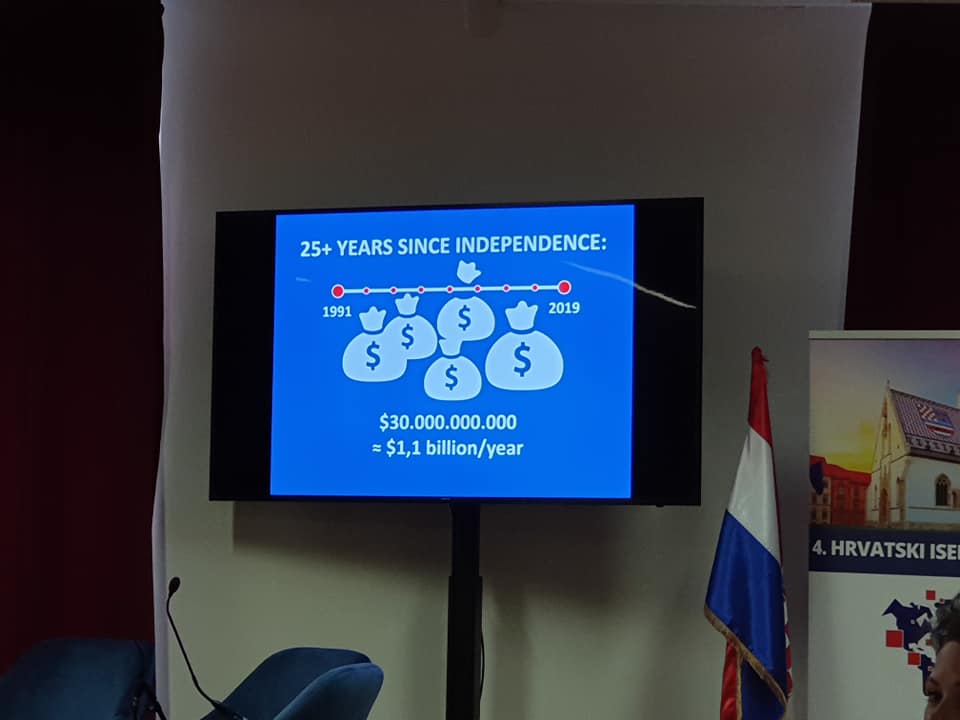
A generous diaspora, which has sent more than 30 billion euro back to Croatia in the 25+ years since independence.
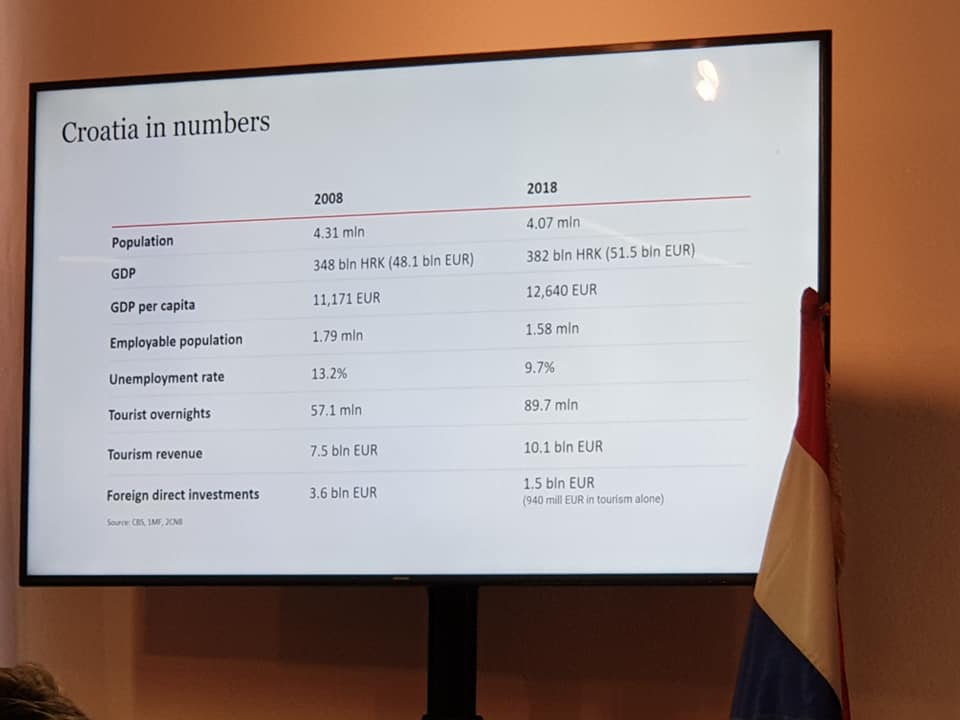
To put that in some kind of perspective, here are the stats for Croatia over the last ten years, above.
It has taken me years to try and understand Croatia and Croatians, and I am not there yet. It would take me a lifetime to understand all the subtleties of the various diaspora groups and their relationships with the Homeland. Let's just say it is beyond complex. I have also come to learn that TCN, like most things in Croatia, is viewed very differently by different parts of the diaspora. Some of the strongest abuse comes from those who do not appreciate a different viewpoint, while some of the strongest support and gratitude comes from other sections of the diaspora. Apart from being grateful for the opportunity to read daily news about the Homeland, many write to show their appreciation of our open writing about Croatia and its problems, with several commenting that the Croatia they read about on TCN is very different to the Croatia they learn about in their diaspora communities in Australia, Canada and the USA.
They say history is written by the winners, but it is also written by communities in exile for the next generation.
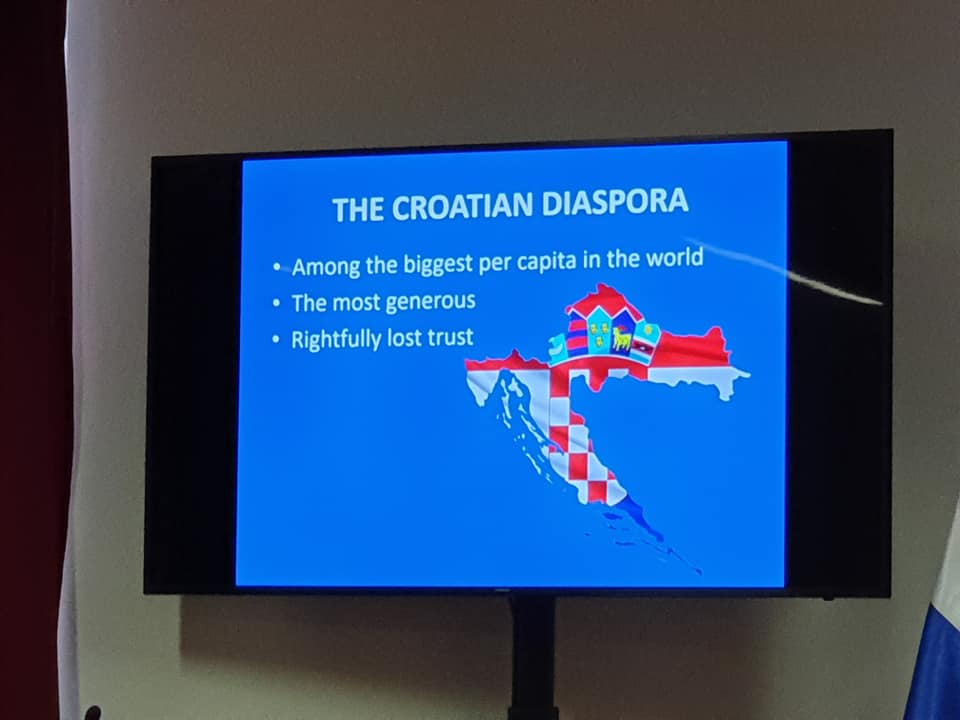
There were so many aspects to this conference to write about, but I want to focus on the core theme of positivity and looking forward, for there was plenty of that.
There was a major effort by the organisers to improve communication channels between those looking to return, and those who have successfully done so, as well as some of the rising stars of the Croatian entrepreneurial world. And this conference was also significant for the fact that for the first time, a senior government minister was fully engaged in the conference. As followers of TCN will know, I have my issues and criticisms of the Ministry of Tourism and Croatian National Tourist Board, but it was great to see Deputy Minister Tonci Glavina, and Head of CNTB Global PR Lucijana Natalija Jerkovic both speaking and fully engaged with the conference - both are very successful returnees.
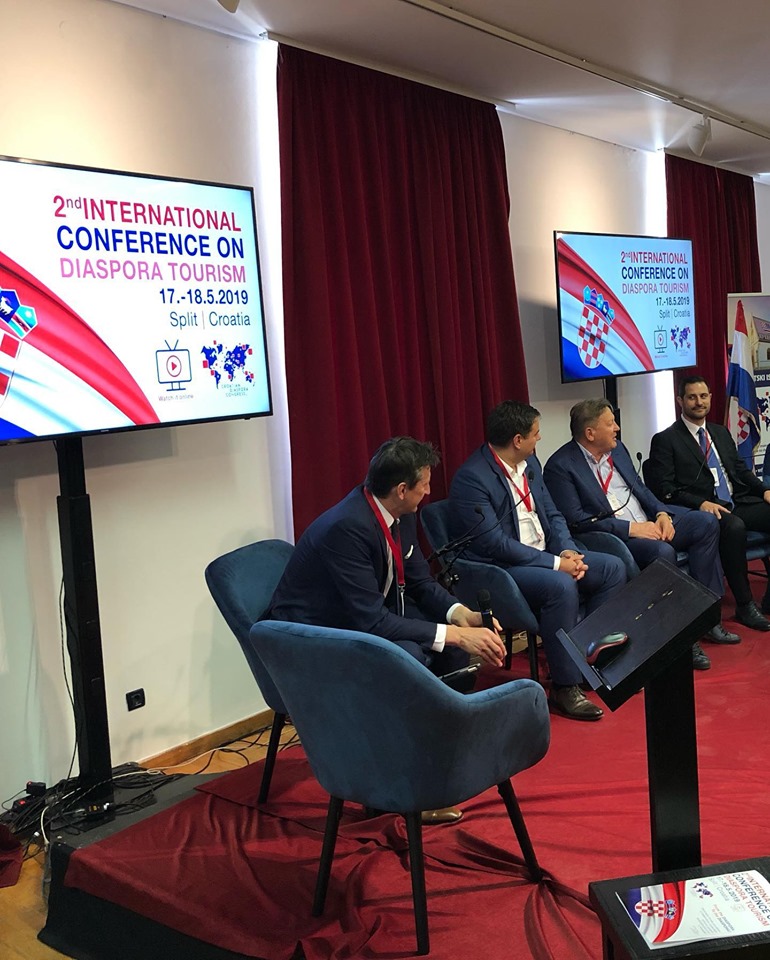
And for those looking to return, the conference - which was live streamed and is available online - there was plenty of inspiring stuff to hear, starting with the opening panel. Joe Basic, the man who brought Ultra Europe to Dalmatia, a returnee from Canada, Marion Duzich, who made his millions in the States before starting a very successful hotel business in Supetar on Brac, John Gasparac from Price Waterhouse Coopers from Canada; and Deputy Minister Glavina, who returned from California.
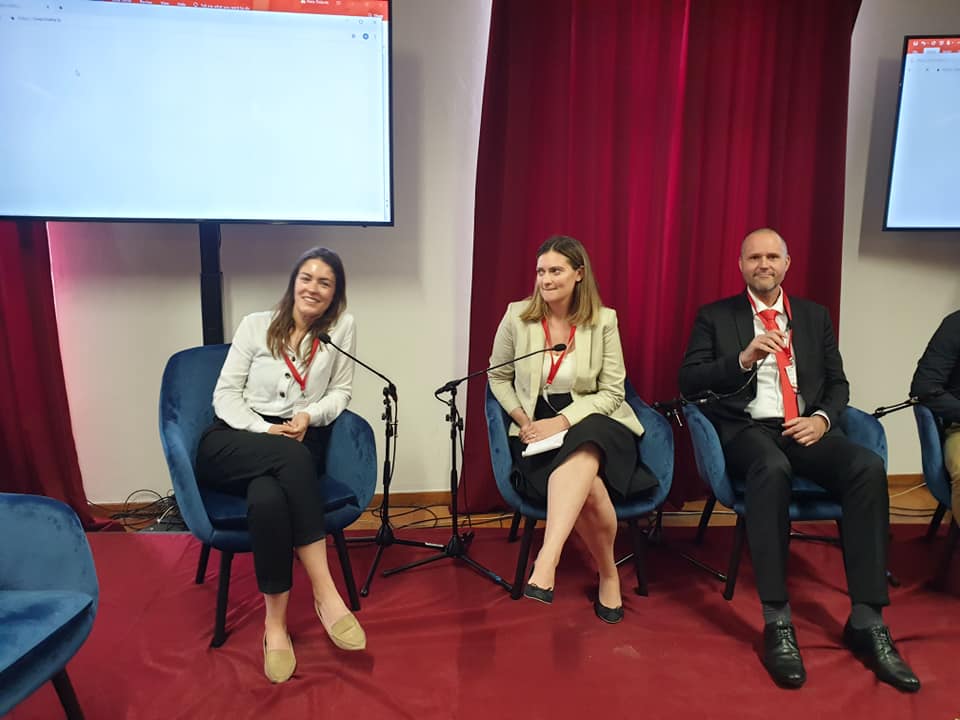
In all, there were about 100 speakers, mostly with successful tales of return. My favourite two ladies from Brasserie on 7 were stars, as they explained how they moved from Sydney to Split as 22-year-olds with an idea to open a hostel. 15 years later, they now have two hostels, two restaurants, a bar, two Croatian husbands, and four children between them. The perfect returnee example of how to succeed.
One of the most popular moments of the conference came when Australian blogger Sarah-Jane Begonja, living near Zadar for 6 years now with her returnee husband, spoke of her experiences, before concluding.
"Croatia is in my heart."
But perhaps the quote of the conference belonged to one of Croatia's most successful businessmen - Farmer John, aka Ivan Zdunic:
"People just want to talk about Partisans and Ustase. I don't want to talk about history, I want to make history."
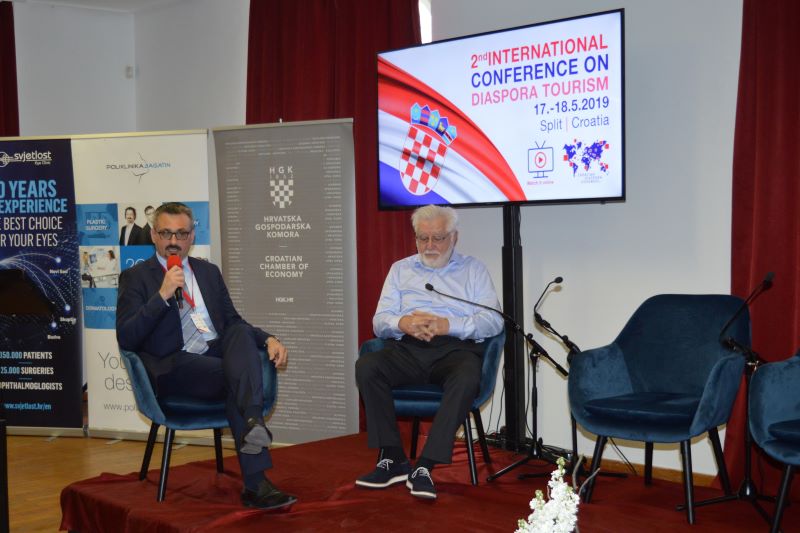
Eugene Brcic Jones, below, gave a brilliant and very candid overview of the perceptions of being an entrepreneur in Australia versus Croatia. He is a two-time returnee, about to launch an Uber-style project which he hopes will go global - www.roomorders.com
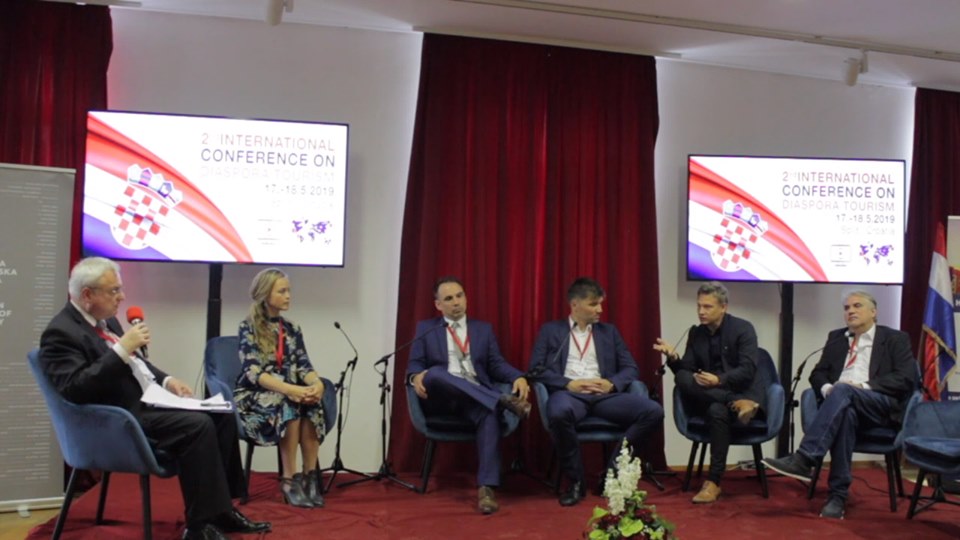
And all the successful returnees had one thing in common. Humility. There were here to work and succeed.
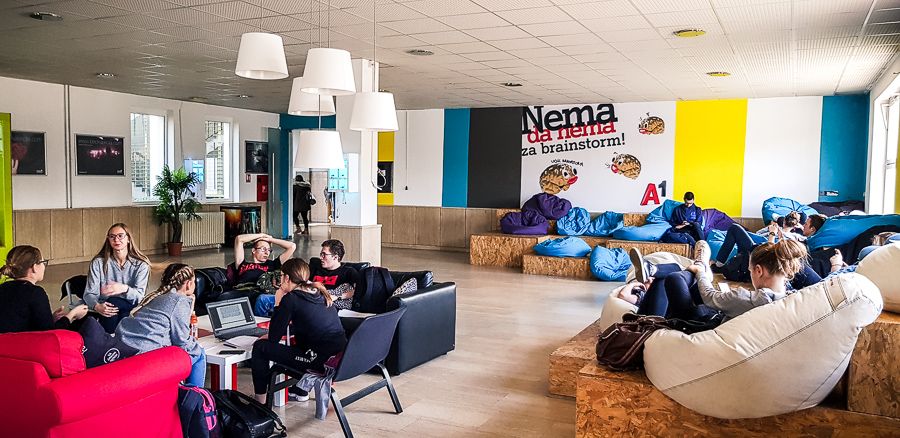
There was a key message of the need to educate people in Croatia, who have been brought up in a country which still has a very socialist mentality. By teaching them free market practices, they can learn how to fish, and not wait to be handed that fish. There are some excellent initiatives from that diaspora in that regard, such as the Tree of Knowledge project TCN covered some time ago, which helps mentor young Croats in entrepreneurial ways.
But education goes both ways, and it was refreshing to hear of one returnee talking of the need to educate returnees that the Croatia today is not the Croatia of the 1940s and 1960s. The more engagement with the rising entrepreneurial class and the sharing of returnee stories - good and bad - will help move the story along.
While I could understand the sentiment of statements such as 'Only the diaspora can save Croatia,' I can also understand why people might find such statements more than a little arrogant. After all, there are huge success stories within Croatia - Mate Rimac and Nenad Bakic did not make the list of the Financial Times Top 100 Digital Champions in Europe by waiting for handouts.
But the engagement of the diaspora is crucial for Croatia's development. That relationship is changing too, with Croatia's entrepreneurs seeking partnership. I particularly liked the session led by Ante Lucic, himself a returnee, who is doing incredible things with his Cronnect.me project which promotes Croatian startups.
"We are not looking for handouts, and we are not looking for humanitarian aid. We are looking for partnerships."
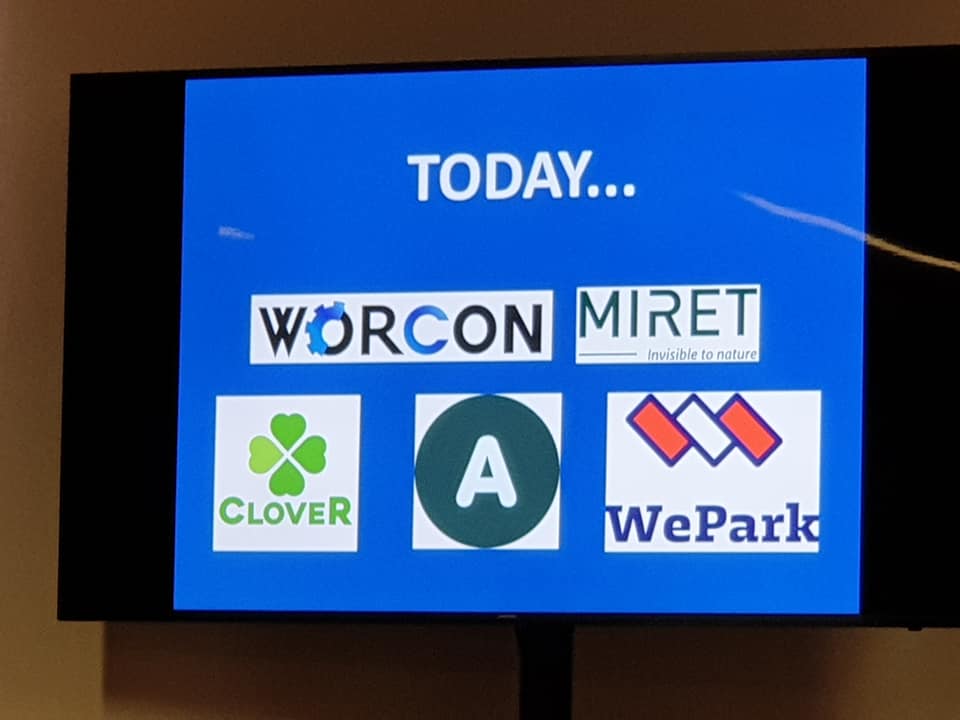
And he proceeded to introduce six incredible startup businesses from Croatia. If I had the money, I would consider investing in four of them.
The health tourism panel was also bubbling with positivity. Conference organiser and health tourism pioneer Ognjen Bagatin, of Bagatin Clinic, repeated his message of how much Croatia and the health tourism industry needs the diaspora, for they are Croatia's ambassadors. Croatian health tourism is an untapped jewel, one more centre of excellence that could benefit both sides while driving the economy.
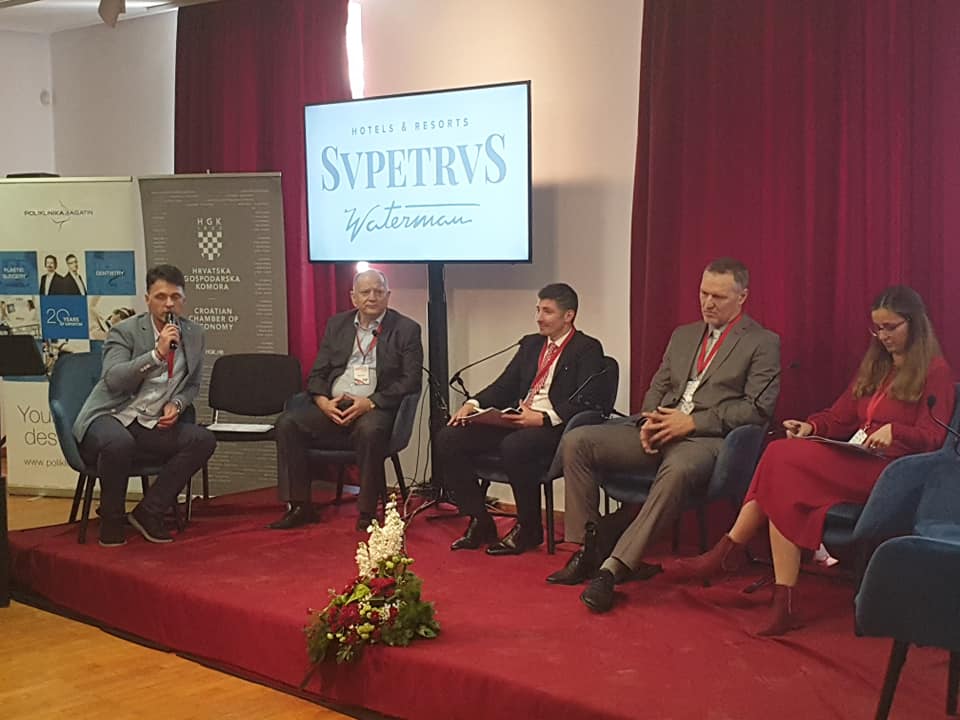
And spare a thought for the idea of fellow panelist Nikica Gabric of Svjetlost, who last month performed eye surgery on Ivanka Trump, the latest positive PR for Croatia's health tourism industry. Five years ago, he had a thought-provoking idea of stimulating the economy. I am not sure if I have the numbers completely correct, but the idea goes along the lines of this:
Draw a circle with a radius of 500 km from Istria and you will have 64 million pensioners, the majority of whom receive decent pensions and live in more expensive countries. Encourage a small percent of them to enjoy their retirement in a beautiful country with great climate, where their spending power if much bigger. And if they spend 50 euro a day...
I did the maths - 1.5% of them would be 1 million, spending 50 euro a day would be 18 billion a year, or double what tourism currently brings to Croatia.
Lots of ideas, many born in the diaspora, but not all.
One area that was mentioned a lot which I hadn't fully appreciated was the aversion of the 'cousins' for returnees. When explained, it made perfect sense. A lot of the emigrants left from rural areas and so were not so connected to influential people on their return. And so they put their trust in the distant cousins back in the Homeland. And let's just say the cousin experience was not a great one...
As a foreigner, I am sure I missed tons of nuances, but my take-home was that this is a great initiative with some concrete seeds sown. And by spreading those messages of success and honest lessons learned, this initiative can only develop for the benefit of all.
I look forward to the next diaspora conference, the G2 in Zagreb, in November.
You can follow the latest coverage on the Croatian diaspora in our dedicated TCN section.


